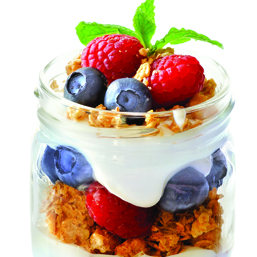
As fast as children jump from classroom to activity to home and back again, their brains are just as rapidly growing and changing. The brain grows exponentially during birth to six years of age. It is unfortunate that sometimes, children don’t receive the daily nutrition they require to fuel their mind and body. Children who eat poorly are more likely to develop certain long-term health problems and complications, such as high blood pressure, high cholesterol, and cardiovascular diseases.
In the first two years of life, when learning is constantly taking place, food preferences are forming. Most are learned, but some are innate. A child’s food preferences directly affect eating behavior which, in turn, is linked to overall health, wellness, obesity, and the formation of their mind and body.
Today, children are subject to an imbalance of nutrients. Processed and undesirable foods provide unsettling amounts of sugar, fat, and salt while the intake of proteins, vitamins, and minerals are compromised. Also, portion sizes have become grossly disproportionate to a child’s energy needs. Reducing sodium, fat, and sugar intake early on can help set taste preferences and help children lay the foundation for healthy food choices later in life.
A major factor in children’s brain development is getting the appropriate nutrients to fuel the mind. High- quality foods that contain lots of vitamins, minerals, and antioxidants protect the brain from oxidative stress, thus encouraging brain cell regeneration and growth.
Shortages of nutrients, such as iron, can also impair cognitive and motor development and these effects are often irreversible. Without proper nutrition, 90 percent of children have overall poor health, 31 percent will likely spend some time in a hospital, and 76 percent are more likely to have problems in cognitive, language, and behavioral development.
Here are five foods that make great fuel for the brain:
1. Eggs. The protein and nutrients in eggs aid in concentration.
2. Greek yogurt. Greek yogurt contains healthy fat, important to brain health. A full-fat 10 percent Greek yogurt, which has more protein than other yogurts, can help keep brain cells in the process of sending and receiving information.
3. Greens. Full of folate and vitamins, spinach and kale are superfoods, and are linked to lower odds of getting dementia later in life. Additionally, the antioxidants in kale support the growth of new brain cells.
4. Fish. The omega-3s and vitamin D found in fish protect the brain from declining mental skills and memory loss. Salmon, tuna, and sardines are rich in omega-3s.
5. Oatmeal. Rich in proteins and fibre, eating oatmeal regularly helps keep heart and brain arteries clear. In one study, kids who ate oatmeal for breakfast did better on memory-related school tasks than those who ate a sugary cereal for breakfast.
Remember, a major factor in children’s brain development is getting the appropriate nutrients to fuel the mind. High-quality foods that contain lots of vitamins, minerals, and antioxidants protect the brain from oxidative stress, encouraging brain cell regeneration and growth.
Charlotte is the Business Director of Fueling Minds, a full-service catering company committed to providing healthy, fresh, and nutritious hand-crafted homestyle meals and snacks for kids with a focus on organic and locally-sourced seasonal items. For more information, including children’s catering and home delivery, visit fuelingminds.ca.
Calgary’s Child Magazine © 2024 Calgary’s Child